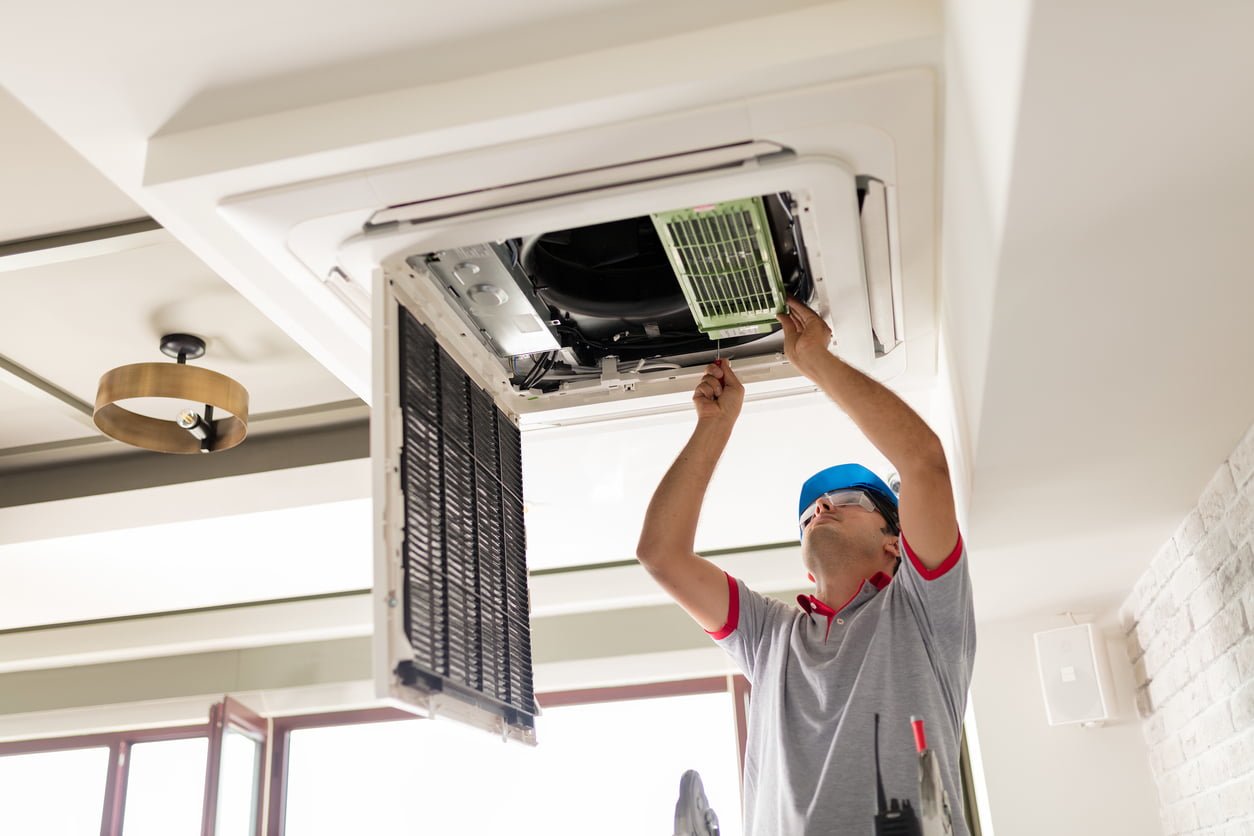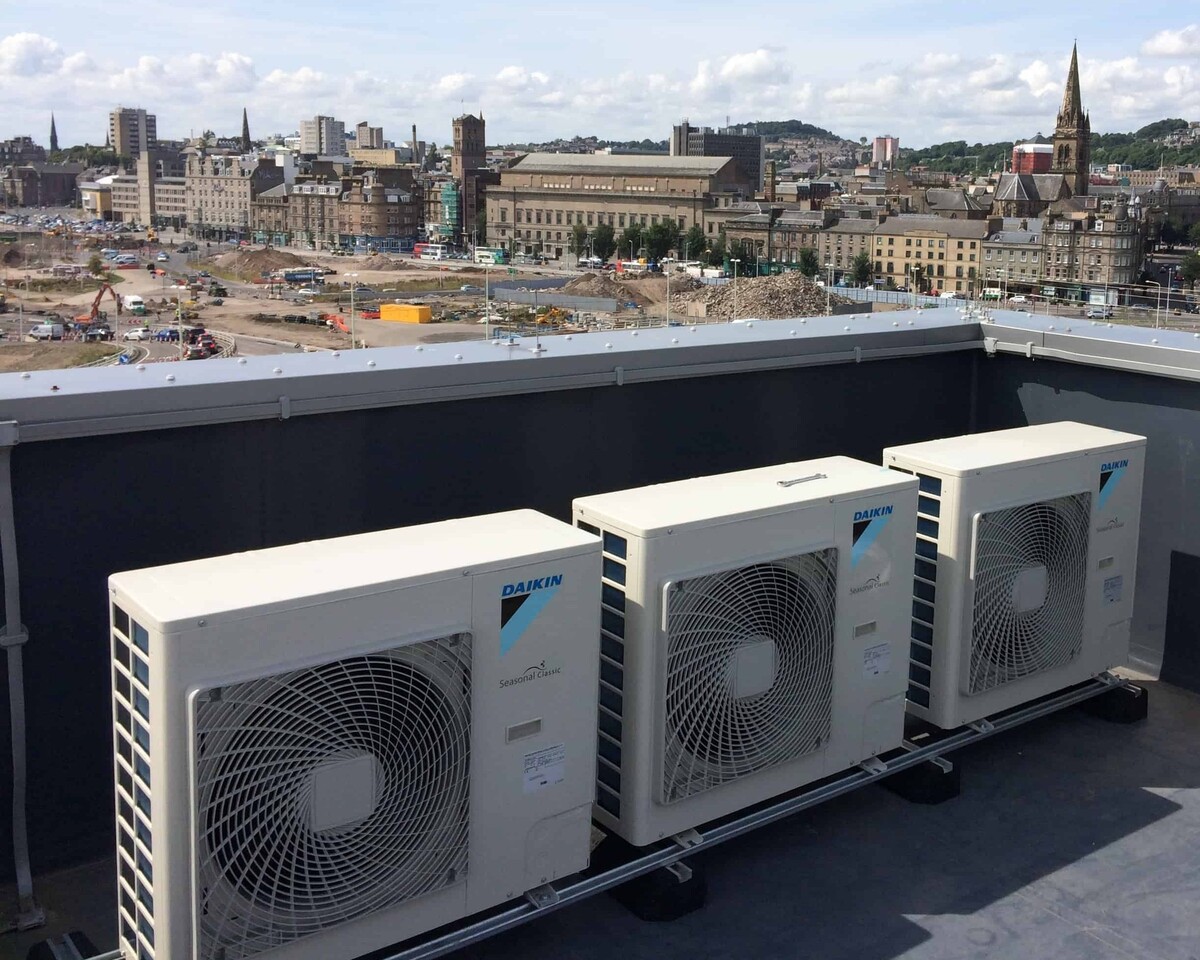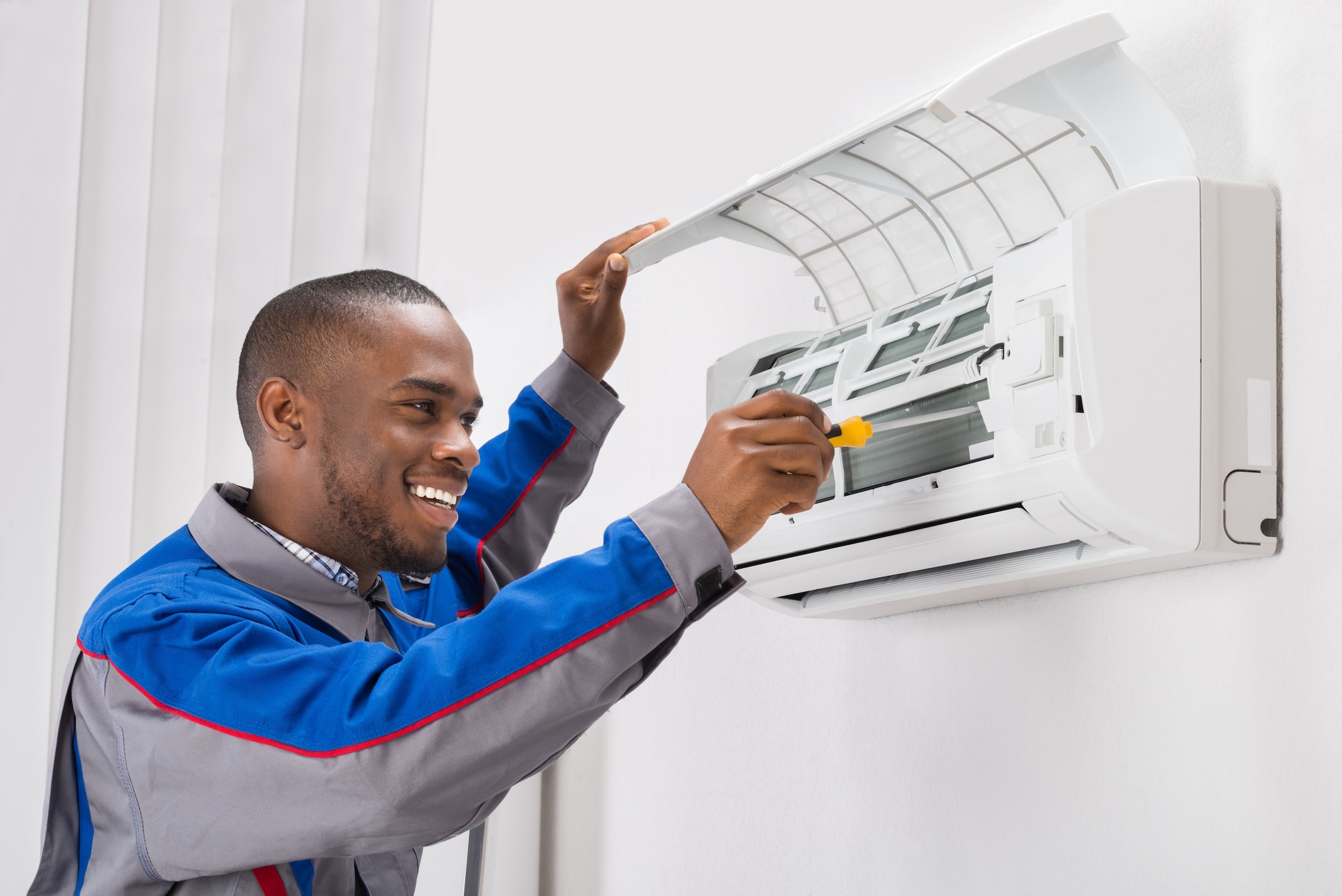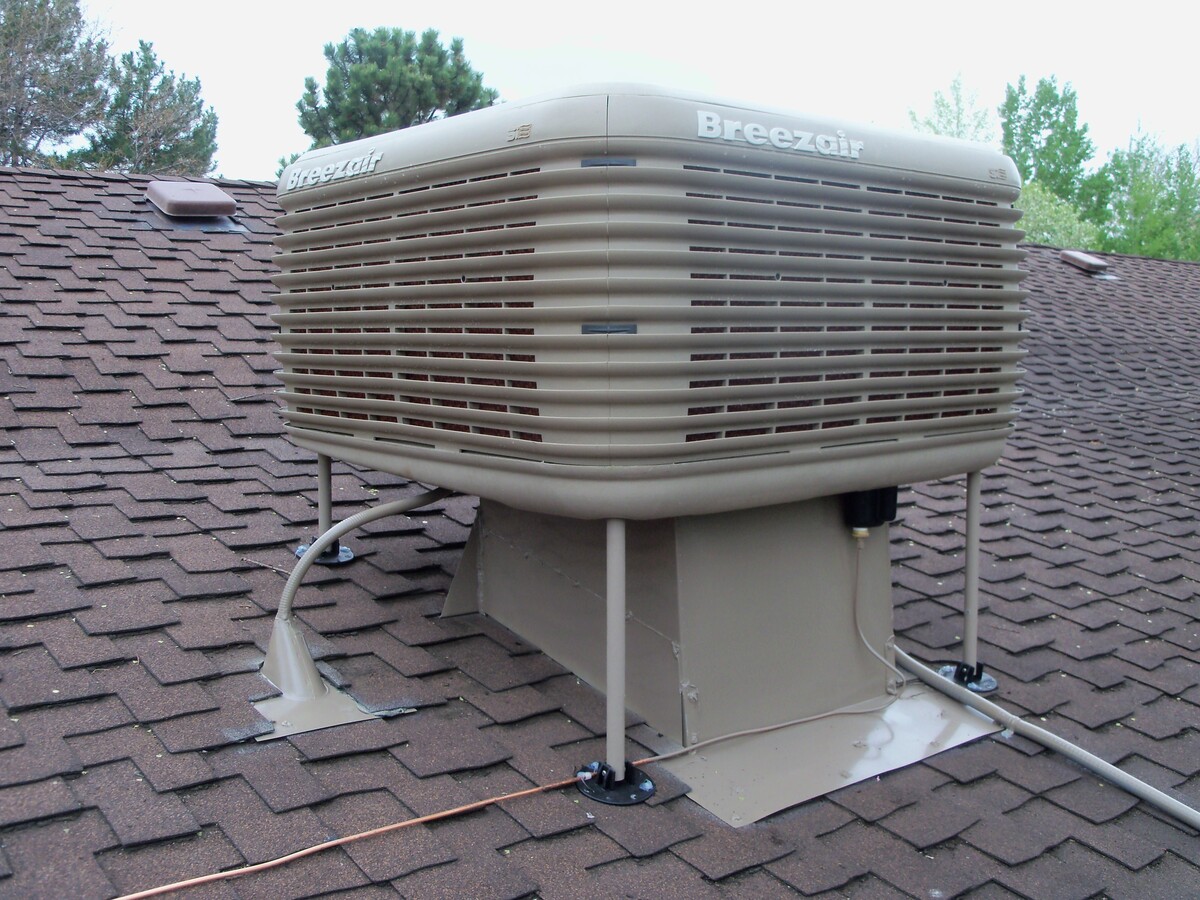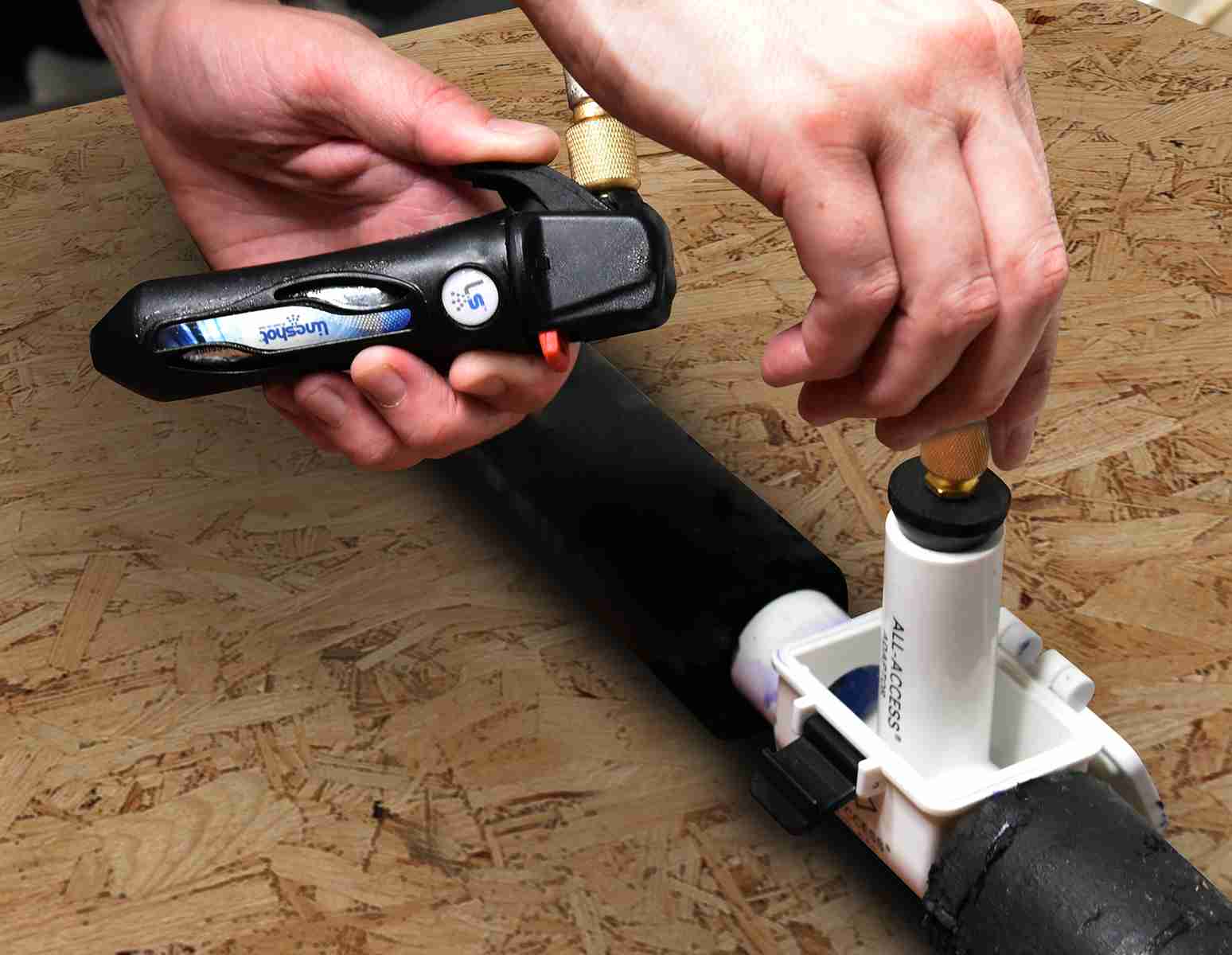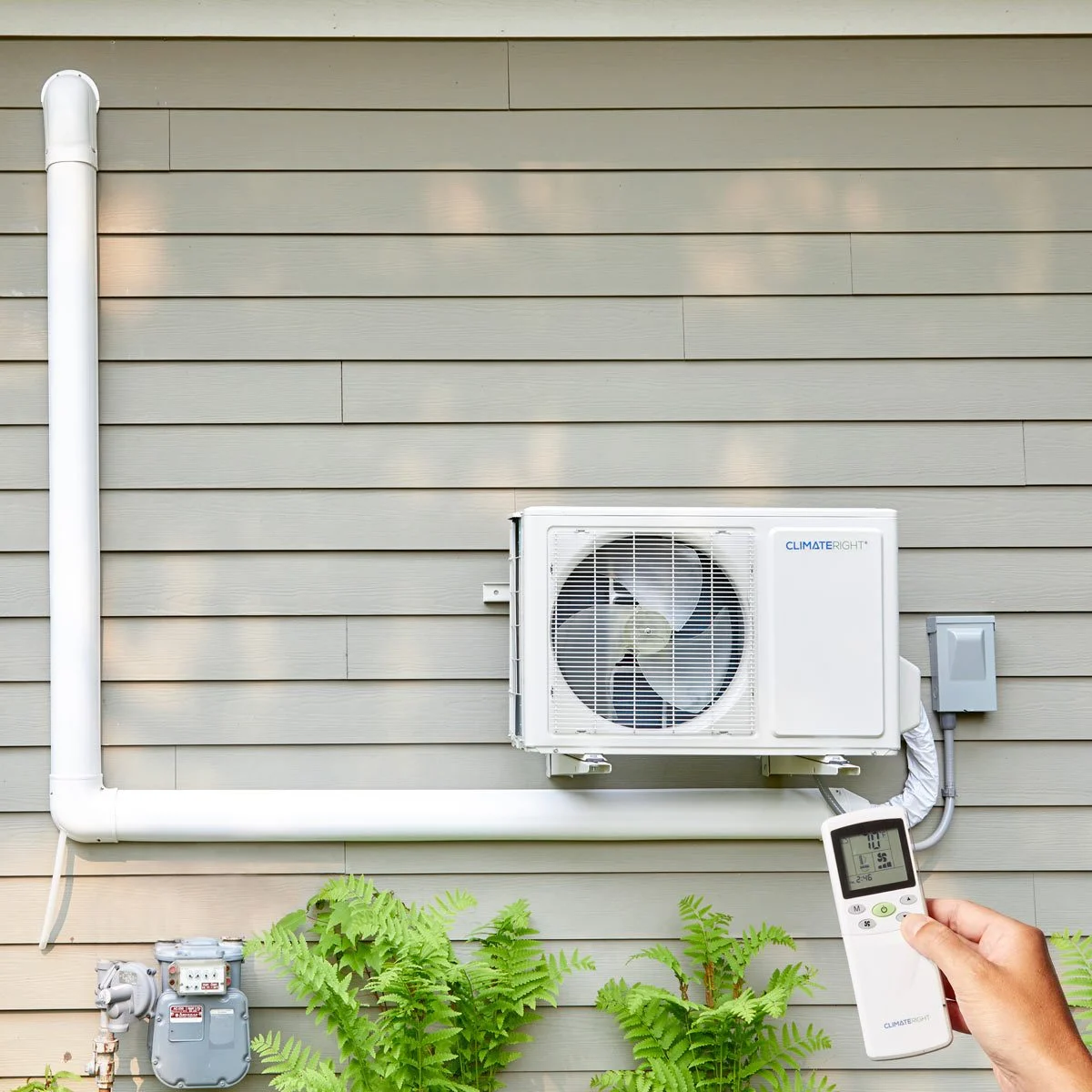Home>Home Maintenance>How To Finance An Air Conditioning Unit
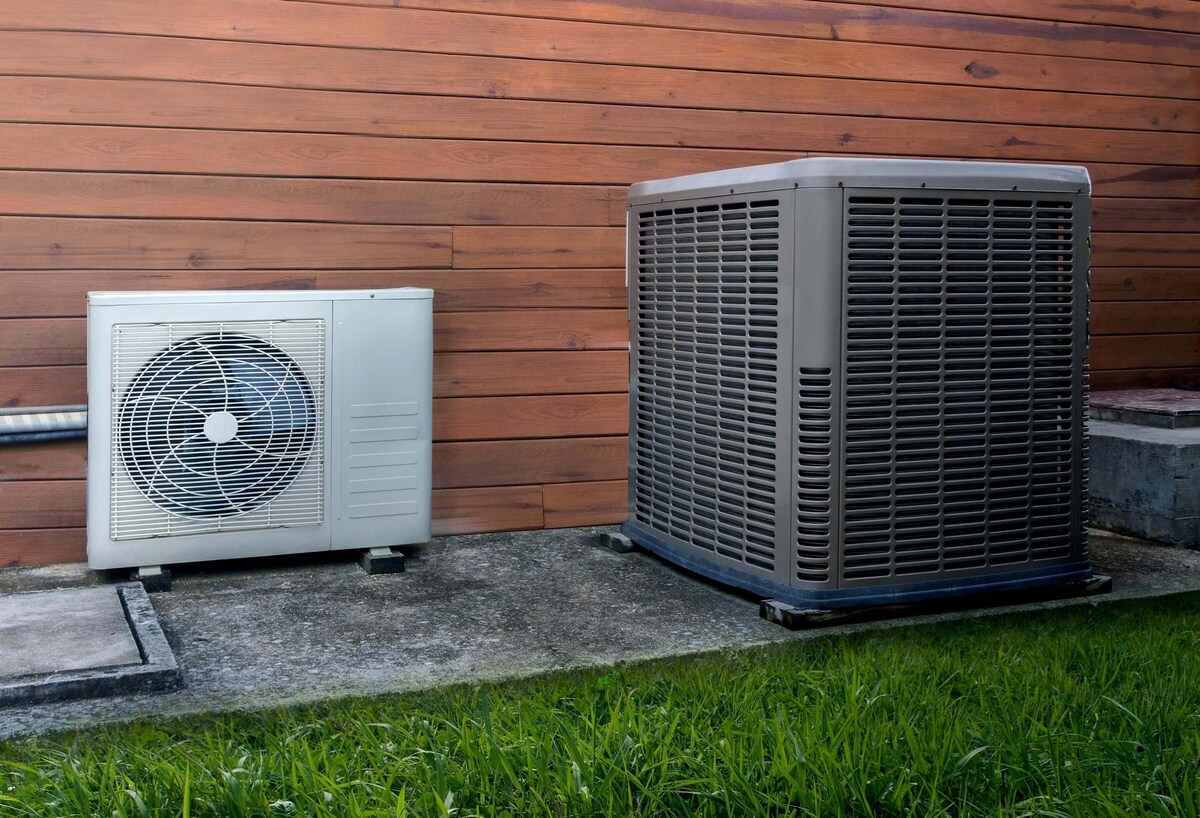

Home Maintenance
How To Finance An Air Conditioning Unit
Modified: March 6, 2024
Looking to finance your home maintenance project? Learn how to finance an air conditioning unit and keep your home cool and comfortable all year round.
(Many of the links in this article redirect to a specific reviewed product. Your purchase of these products through affiliate links helps to generate commission for Storables.com, at no extra cost. Learn more)
Introduction
Welcome to the comprehensive guide on how to finance an air conditioning unit. As temperatures rise and the summer season approaches, it’s essential to have a reliable and efficient cooling system in your home. However, purchasing and installing an air conditioner can be a significant expense that may require additional funds. Fortunately, there are various financing options available to help homeowners make this investment without breaking the bank.
In this article, we will explore the different financing options for air conditioning units, including traditional bank loans, home improvement loans, manufacturer financing programs, lease and rental options, and energy efficiency rebates. We will also provide valuable tips for successfully financing your air conditioning unit, ensuring that you make an informed decision that suits your financial situation and needs.
Whether you are upgrading an old air conditioner or installing a brand-new unit, understanding the various financing options available will help you make the best choice for your home. So, let’s dive into the world of air conditioning financing and explore the options that can help you keep your home cool and comfortable all summer long.
Key Takeaways:
- Financing an air conditioning unit can be necessary for emergencies, energy efficiency, home value, and comfort. Understanding the need for financing helps homeowners make informed decisions that align with their budget and specific requirements.
- Exploring financing options such as traditional bank loans, home improvement loans, manufacturer financing programs, lease and rental options, and energy efficiency rebates provides homeowners with flexibility and stability. It’s essential to carefully evaluate each option’s interest rates, repayment terms, and any associated fees to make an informed decision.
Read more: How To Finance Home Improvement
Understanding the Need for Financing an Air Conditioning Unit
As homeowners, we rely on our air conditioning units to keep us comfortable during the hot summer months. An air conditioner not only cools the air but also helps remove humidity, creating a pleasant and inviting indoor environment. However, purchasing and installing an air conditioning unit can be a significant financial investment.
There are several reasons why financing an air conditioning unit may be necessary:
- Emergency Replacement: Sometimes, our air conditioning units break down unexpectedly, leaving us without cool air in sweltering temperatures. In such situations, financing can provide immediate access to funds, allowing for a quick replacement to restore comfort in the home.
- Energy Efficiency: Older air conditioning units tend to consume more energy and result in higher utility bills. Financing a new, energy-efficient air conditioner can help homeowners save money in the long run by reducing monthly energy expenses. The savings on utility bills can offset the cost of financing the unit.
- Home Value: Upgrading your air conditioning system not only improves the comfort of your home but also enhances its value. A modern and energy-efficient air conditioner is an attractive feature for potential buyers if you decide to sell your home in the future.
- Comfort and Health: A malfunctioning or inadequate air conditioning unit can lead to discomfort and health issues, particularly for individuals with respiratory conditions or allergies. Financing allows homeowners to invest in a unit that provides optimal comfort and maintains healthy air quality.
By understanding the need for financing an air conditioning unit, homeowners can make informed decisions that align with their budget and specific requirements. Financing offers a flexible solution to address these needs and ensure that your home remains cool and comfortable throughout the summer.
Exploring Financing Options for Air Conditioning Units
When it comes to financing an air conditioning unit, there are several options available to homeowners. Let’s explore some of the most common financing options:
1. Traditional Bank Loans: Homeowners can consider obtaining a personal loan or a home equity loan from a bank or financial institution. Personal loans typically have a fixed interest rate and repayment period, while home equity loans use the equity in your home as collateral. These options allow you to borrow a lump sum to cover the cost of the air conditioning unit and repay it in installments over time.
2. Home Improvement Loans: Another financing option is a home improvement loan, specifically designed for funding home improvement projects. These loans often have favorable interest rates and longer repayment terms. Home improvement loans can be a suitable choice for financing air conditioning units as they are categorized as a home improvement investment.
3. Manufacturer Financing Programs: Many air conditioning manufacturers offer their own financing programs. These programs may come with competitive interest rates and flexible repayment terms. Financing through the manufacturer is worth considering as they have a vested interest in promoting their products and often provide attractive financing options to encourage sales.
4. Lease and Rental Options: Some companies specialize in leasing or renting air conditioning units. This option allows homeowners to pay a monthly fee for the use of the equipment without the upfront cost of purchasing. While leasing or renting can be more expensive in the long run, it provides a hassle-free solution for homeowners who prefer not to commit to ownership.
5. Energy Efficiency Rebates and Incentives: Homeowners may qualify for energy efficiency rebates and incentives offered by government bodies or utility companies. These programs provide financial assistance to encourage the purchase of energy-efficient appliances, including air conditioning units. It’s worth researching local rebate programs and incentives that can significantly reduce the overall cost of financing an energy-efficient air conditioner.
Each financing option has its own advantages and considerations. It’s essential to carefully evaluate your financial situation, including your budget and credit score, before opting for a particular financing method. Additionally, comparing interest rates, repayment terms, and any fees associated with each option will help you make an informed decision.
Now that we have explored the different ways to finance an air conditioning unit, let’s move on to evaluating the costs and benefits of financing in the next section.
Traditional Bank Loans
One of the most common financing options for homeowners looking to finance an air conditioning unit is through traditional bank loans. These loans can be obtained from banks, credit unions, or online lending institutions. Let’s take a closer look at traditional bank loans and how they can be utilized for air conditioning financing.
1. Personal Loans: Personal loans are unsecured loans that allow homeowners to borrow a fixed amount of money from a lender. These loans generally have a fixed interest rate and a set repayment period, typically ranging from one to five years. The interest rates on personal loans can vary depending on factors such as credit score, income, and debt-to-income ratio. Homeowners with a good credit history may qualify for more favorable interest rates and terms.
2. Home Equity Loans: Homeowners who have accumulated equity in their homes can consider tapping into that equity through a home equity loan. This type of loan allows homeowners to borrow against the appraised value of their home, using it as collateral. Home equity loans typically have lower interest rates compared to personal loans because they are secured by the property. The repayment term for a home equity loan can range from five to 30 years.
3. Home Equity Lines of Credit (HELOC): Similar to a home equity loan, a home equity line of credit (HELOC) allows homeowners to borrow against the equity in their homes. However, rather than receiving a lump sum, homeowners are granted a line of credit that they can draw from as needed. The interest rates on HELOCs are variable, meaning they can fluctuate over time. Homeowners can borrow from the line of credit during a specified draw period, typically 5 to 10 years, and repayment is required during the repayment period.
When considering traditional bank loans, it’s important to keep the following factors in mind:
- Interest Rates: Compare interest rates from different lenders to ensure you are getting the most favorable rate possible. A lower interest rate can significantly impact the total cost of borrowing.
- Repayment Terms: Evaluate the repayment period and monthly installment amounts. Ensure that the repayment terms fit comfortably within your budget.
- Credit Score: Lenders will consider your credit score when determining your eligibility and interest rate for the loan. Maintaining a good credit score can help secure a better loan offer.
- Loan Fees: Be aware of any application fees, origination fees, or other charges associated with the loan. These fees can add to the overall cost of borrowing.
Traditional bank loans offer flexibility and stability for homeowners looking to finance their air conditioning units. However, it’s essential to compare loan offers, understand the terms and conditions, and ensure that financing through a traditional bank loan aligns with your financial goals and capabilities.
Next, we will explore another financing option specifically designed for home improvement projects – home improvement loans.
Home Improvement Loans
Home improvement loans are a specialized type of financing that homeowners can consider when looking to finance an air conditioning unit. These loans are specifically designed to fund home improvement projects, making them a suitable option for upgrading or installing a new air conditioner. Let’s delve into the details of home improvement loans and how they can be utilized for air conditioning financing.
1. Secured Home Improvement Loans: Secured home improvement loans are loans that are backed by collateral, usually your home. The collateral acts as security for the lender, which reduces the risk, allowing for more favorable loan terms. With secured home improvement loans, homeowners may be able to borrow larger amounts of money, and interest rates tend to be lower compared to unsecured loans. The loan amount that can be obtained depends on factors such as the value of the home and the equity available.
2. Unsecured Home Improvement Loans: Unsecured home improvement loans do not require collateral, making them a viable option for homeowners who do not want to use their home as security. Since these loans are not backed by collateral, lenders may have stricter eligibility criteria and interest rates may be slightly higher compared to secured loans. However, unsecured home improvement loans provide a convenient financing solution without the risk of losing your home in case of non-payment.
3. Government Programs and Grants: In addition to traditional loans from financial institutions, homeowners may also explore government programs and grants aimed at promoting energy efficiency and home improvements. These programs provide financial assistance, such as low-interest loans or grants, to encourage homeowners to invest in energy-efficient upgrades. Research local government programs and initiatives that may offer funding specifically for air conditioning unit installation or replacement.
When considering home improvement loans for air conditioning financing, keep the following factors in mind:
- Loan Terms: Evaluate the terms and conditions of the loan, including the interest rate, repayment period, and any additional fees. Ensure that the loan terms align with your financial goals and budget.
- Eligibility Criteria: Lenders may have specific eligibility criteria, such as credit score requirements and income verification. Be sure to understand and meet these criteria before applying for a loan.
- Documentation and Application Process: Understand the documentation and application process for obtaining a home improvement loan. Prepare the necessary documents and be prepared for the application process, which may involve a credit check and income verification.
- Project Financing: Some lenders may offer project-specific financing options where the loan proceeds are directly disbursed to the contractor or supplier. This can be convenient and help ensure that the funds are used solely for your air conditioning installation or replacement.
Home improvement loans provide homeowners with a dedicated financing option for their air conditioning projects. By exploring these loan options, you can secure the necessary funds to invest in a high-quality and energy-efficient air conditioning unit, enhancing the comfort and value of your home.
In the next section, we will discuss manufacturer financing programs as another option for financing your air conditioning unit.
Read more: What Is A Register In Air Conditioning
Manufacturer Financing Programs
When it comes to financing an air conditioning unit, homeowners have the option to explore manufacturer financing programs. Many air conditioning manufacturers offer their own financing programs to make it easier for customers to afford their products. These programs can provide attractive financing terms and flexible payment options. Let’s take a closer look at manufacturer financing programs and how they can be utilized for air conditioning financing.
1. Competitive Interest Rates: Manufacturer financing programs often come with competitive interest rates that can be lower than traditional bank loans or credit cards. This can help reduce the overall cost of financing an air conditioning unit, making it more affordable for homeowners.
2. Flexible Payment Options: Manufacturer financing programs may offer flexible payment options tailored to fit the homeowner’s budget. This could include low monthly payments, deferred interest, or even zero-interest options for a specified period. These payment plans provide homeowners with flexibility and convenience in managing their air conditioning unit financing.
3. Streamlined Application Process: Applying for manufacturer financing is usually a straightforward process. Many manufacturers have an online application portal or work directly with authorized dealers to facilitate the financing process. This streamlines the application process, making it quick and convenient for homeowners.
4. Promotional Offers: Manufacturers often run special promotions or incentives for financing through their programs. This could include discounts, rebates, or extended warranties for customers who choose to finance their air conditioning unit through the manufacturer’s program. These promotional offers can provide additional cost savings and value to homeowners.
When considering manufacturer financing programs, it’s important to keep the following factors in mind:
- Manufacturer Reputation: Research the reputation and credibility of the manufacturer offering the financing program. Choose a reputable manufacturer with a history of providing quality products and reliable customer service.
- Loan Terms: Review the loan terms, including interest rates, repayment periods, and any additional fees or charges. Compare the terms with other financing options to ensure you are getting the best deal.
- Eligibility Requirements: Understand the eligibility requirements for the manufacturer financing program. This can include factors such as credit history, income verification, and the specific model or type of air conditioning unit being financed.
- Customer Support: Evaluate the level of customer support provided by the manufacturer. It’s important to have access to assistance and guidance throughout the financing process and the entire lifespan of your air conditioning unit.
Manufacturer financing programs can be an attractive option for homeowners looking to finance their air conditioning unit. These programs provide flexibility, competitive rates, and promotional offers that can make the financing process more affordable and convenient. Be sure to compare different manufacturer financing options and choose the one that best suits your needs and financial situation.
Next, we will discuss lease and rental options as another alternative for financing your air conditioning unit.
Consider financing options such as personal loans, home equity loans, or credit cards with 0% introductory APR. Look for energy-efficient units to save on long-term costs.
Lease and Rental Options
If you’re looking for an alternative to traditional financing methods for your air conditioning unit, lease and rental options can provide a viable solution. These options allow homeowners to enjoy the benefits of a cooling system without the upfront cost of purchasing the equipment. Let’s explore lease and rental options for financing your air conditioning unit.
1. Monthly Lease Payments: With a lease option, you pay a monthly fee to use the air conditioning unit, similar to renting. Lease payments typically include not only the cost of the equipment but also maintenance and repairs during the lease term. At the end of the lease period, you may have the option to purchase the unit or upgrade to a newer model.
2. Rental Programs: Rental programs offer a convenient option for homeowners who prefer a short-term solution or are unsure about committing to long-term ownership. Rental agreements typically involve a fixed-term contract, and monthly rental payments cover the use of the air conditioning unit. Rental programs often include installation and ongoing maintenance as part of the rental package.
3. Flexibility: Lease and rental options provide flexibility by allowing homeowners to upgrade or replace the air conditioning unit at the end of the lease or rental term. This flexibility is particularly useful if you anticipate changes in your cooling needs or if you’re not ready to commit to long-term ownership.
4. Maintenance and Repairs: One of the advantages of lease and rental options is that maintenance and repairs are often included in the agreement. This eliminates the need for homeowners to bear the cost and responsibility of repairs and ensures that the unit remains in good working condition throughout the lease or rental term.
5. No Upfront Costs: Lease and rental options eliminate the need for a significant upfront investment. This can be beneficial for homeowners who may not have the funds available for purchasing an air conditioning unit outright or for those who prefer to allocate their funds for other expenses.
Before choosing a lease or rental option for your air conditioning unit, consider the following factors:
- Monthly Payments: Evaluate the monthly lease or rental payments to ensure they fit within your budget. Compare the costs to potential savings in utility bills and other considerations to determine the overall affordability.
- Lease or Rental Terms: Understand the terms and conditions of the lease or rental agreement, including the duration, termination options, and any penalties or fees associated with early termination.
- Equipment Quality: Research the quality and reliability of the equipment provided under the lease or rental program. Ensure that the unit meets your cooling needs and operates efficiently.
- Customer Support: Assess the level of customer support provided by the leasing or rental company. Prompt response times and reliable assistance are essential in case of any maintenance or repair issues.
Lease and rental options offer homeowners the flexibility to enjoy the benefits of an air conditioning unit without the immediate financial burden of purchasing. If you prefer a short-term solution or want the ability to upgrade in the future, considering lease and rental options for financing your air conditioning unit may be a suitable choice.
In the next section, we will discuss energy efficiency rebates and incentives that can help offset the costs of financing your air conditioning unit.
Energy Efficiency Rebates and Incentives
When considering financing options for your air conditioning unit, it’s essential to explore energy efficiency rebates and incentives that can help offset the costs. Many government bodies and utility companies offer financial assistance to encourage homeowners to invest in energy-efficient appliances, including air conditioning units. Let’s explore energy efficiency rebates and incentives and how they can make financing your air conditioning unit more affordable.
1. Government Rebate Programs: Local, state, and federal government bodies often provide rebates and incentives for homeowners who purchase energy-efficient air conditioning units. These rebates can be in the form of a direct cash incentive or a reduction in the purchase price at the time of installation. Research the available government programs in your area to determine if you qualify for any energy efficiency rebate programs.
2. Utility Company Incentives: Utility companies may also offer incentives and rebates to homeowners who upgrade to energy-efficient air conditioning units. These incentives can come in the form of bill credits, reduced energy rates, or even free or discounted installation services. Check with your local utility company to see if they offer any energy efficiency programs that can help offset the costs of financing your air conditioning unit.
3. Tax Credits: In addition to rebates, there may be tax credits available for homeowners who invest in energy-efficient home improvements, including air conditioning units. Tax credits can provide a substantial financial benefit by reducing the amount of income tax you owe. Consult with a tax professional or review the United States government’s energy tax credit website to determine if you qualify for any tax credits associated with energy-efficient air conditioning units.
4. Manufacturer Rebates: Air conditioning manufacturers may offer their own rebates and incentives for purchasing their energy-efficient models. These rebates can directly reduce the purchase price or provide other benefits such as extended warranties or discounted maintenance services. Keep an eye out for any manufacturer rebates or promotions that can help make financing your air conditioning unit more cost-effective.
When considering energy efficiency rebates and incentives, be sure to:
- Research Eligibility: Understand the eligibility requirements for each rebate or incentive program. Some programs may have specific criteria, such as the energy efficiency rating of the unit or income limits.
- Take Advantage of Multiple Programs: In many cases, you can combine multiple rebates and incentives. Be sure to explore all available options to maximize your savings.
- Keep Documentation: Keep all documentation, receipts, and proof of purchase necessary to claim any rebates or incentives. Ensure that you follow the application process and submit all required information to receive the benefits.
- Plan Ahead: Some rebate programs may have limited funding or specified expiration dates. Plan ahead and take advantage of these programs before they expire.
Energy efficiency rebates and incentives can significantly reduce the overall cost of financing your air conditioning unit. By leveraging these programs, you can make your investment in energy-efficient cooling systems more affordable, ensuring long-term energy savings and environmental benefits.
Now that we have explored the options for financing an air conditioning unit, let’s move on to evaluating the costs and benefits of financing in the next section.
Evaluating the Costs and Benefits of Financing
When it comes to financing an air conditioning unit, it’s important to evaluate the costs and benefits to make an informed decision that aligns with your financial situation and long-term goals. By carefully considering the following factors, you can determine the feasibility of financing your air conditioning unit and understand the potential advantages and drawbacks.
1. Total Cost of Financing: Begin by calculating the total cost of financing, including the principal amount, interest charges, and any additional fees. This will help you understand the true cost of borrowing and determine if it fits within your budget.
2. Monthly Payments: Consider the monthly payments associated with the financing option. Ensure that the payments are manageable and align with your monthly cash flow. If the monthly payments are too high, it may strain your finances or cause financial stress.
3. Interest Rates: Compare the interest rates offered by different financing options. Higher interest rates can significantly impact the total cost of financing, so look for the most favorable rates available to minimize the overall expense.
4. Repayment Terms: Evaluate the repayment terms of the financing option. Longer repayment periods may lower the monthly payments but result in higher overall interest costs. Shorter repayment periods, on the other hand, may result in higher monthly payments but lower total interest costs.
5. Potential Energy Savings: Consider the energy efficiency of the air conditioning unit you plan to finance. Energy-efficient units may have a higher upfront cost but can result in long-term energy savings and lower utility bills. Assess the potential energy savings and calculate how long it will take to recoup the initial investment through reduced energy expenses.
6. Home Value: Upgrading to a new air conditioning unit can enhance the value of your home. Consider the potential impact on your overall home value when evaluating the costs and benefits of financing. If you plan to sell your home in the future, a modern and energy-efficient air conditioning unit can be an attractive selling point.
7. Peace of Mind: Financing an air conditioning unit can provide peace of mind, knowing that you have a reliable and efficient cooling system in your home. This can contribute to your overall comfort, health, and well-being, particularly during hot summer months.
8. Financial Flexibility: Assess your financial situation and determine if financing the air conditioning unit aligns with your overall financial goals and plans. Consider factors such as other outstanding debts, savings objectives, and emergency funds. Ensure that financing the unit will not jeopardize your financial stability.
By evaluating the costs and benefits of financing an air conditioning unit, you can make a well-informed decision that suits your needs and financial circumstances. Take into account the total cost of financing, monthly payments, interest rates, potential energy savings, home value, peace of mind, and overall financial flexibility. Performing a thorough analysis will enable you to enjoy the benefits of a new air conditioning unit while minimizing the potential downsides of financing.
In the next section, we will provide valuable tips for successfully financing your air conditioning unit.
Read more: What Are Tons In Air Conditioning
Tips for Successfully Financing an Air Conditioning Unit
When it comes to financing an air conditioning unit, there are several tips that can help you navigate the process successfully and make a well-informed decision. Consider the following tips to ensure a smooth and positive experience in financing your air conditioning unit:
1. Assess Your Budget: Before committing to any financing option, assess your budget thoroughly. Determine how much you can comfortably afford to allocate towards monthly payments without straining your finances. Consider your income, expenses, and existing financial obligations to establish a realistic budget.
2. Research Financing Options: Take the time to research and compare different financing options. Explore traditional bank loans, home improvement loans, manufacturer financing programs, lease and rental options, and energy efficiency rebates. Evaluate the interest rates, repayment terms, eligibility requirements, and any associated fees for each option to find the one that best suits your needs.
3. Shop for the Best Deals: When considering financing options, don’t settle for the first offer you receive. Shop around and compare rates and terms from multiple lenders or financing programs. This will help you find the best deal and potentially save you money in the long run.
4. Check Your Credit Score: Your credit score plays a significant role in determining your eligibility and interest rates for financing. Before applying for financing, check your credit score and take steps to improve it if necessary. Pay off outstanding debts, make payments on time, and correct any errors on your credit report to boost your creditworthiness.
5. Consider Energy Efficiency: Investing in an energy-efficient air conditioning unit can result in long-term energy savings and lower utility bills. Choose a unit with a high SEER (Seasonal Energy Efficiency Ratio) rating to maximize efficiency. Remember that while energy-efficient units may have a higher upfront cost, they can significantly reduce your operating expenses over time.
6. Read the Fine Print: Before signing any financing agreement, carefully read and understand the terms and conditions. Pay attention to interest rates, repayment schedules, penalties for early repayment, and any additional fees. Ensure you are fully aware of all the details before committing to the financing option.
7. Utilize Energy Efficiency Rebates: Take advantage of energy efficiency rebates and incentives to reduce the overall cost of financing. Research available programs and ensure that you meet the eligibility requirements. Applying for these rebates can provide significant savings and contribute to a more cost-effective financing solution.
8. Work with Reputable Contractors: When installing your air conditioning unit, work with reputable contractors who have experience in the industry. Choose a contractor who can provide quality installation services and offer warranties for their work. This will help ensure that your unit operates efficiently and minimizes the risk of future repairs or issues.
9. Monitor and Maintain Your Equipment: To protect your investment, make sure to regularly maintain and monitor your air conditioning unit. Follow manufacturer guidelines for regular maintenance, such as cleaning or replacing filters, clearing debris around the unit, and scheduling professional inspections. Proper maintenance will help extend the lifespan of your unit and optimize its performance.
10. Plan for Contingencies: It’s essential to have a backup plan in case of unforeseen circumstances. Consider factors such as job stability, emergency savings, and potential financial challenges. Having a contingency plan in place will provide peace of mind and help you manage your finances effectively even during challenging times.
By following these tips, you can approach financing your air conditioning unit with confidence and make a decision that aligns with your financial goals and needs. Remember to assess your budget, research financing options, check your credit score, consider energy efficiency, read the fine print, utilize rebates, work with reputable contractors, maintain your equipment, and plan for contingencies. With these strategies in mind, you can successfully finance your air conditioning unit and enjoy a cool and comfortable home.
Now that you have the necessary tips, you can move forward with financing your air conditioning unit and start enjoying the benefits of a comfortable and energy-efficient home environment.
Conclusion
Financing an air conditioning unit can provide homeowners with the opportunity to enjoy a cool and comfortable living space, even during hot summer months. By exploring the various financing options available, homeowners can find a solution that fits their budget and aligns with their long-term goals. Understanding the need for financing, exploring traditional bank loans, home improvement loans, manufacturer financing programs, lease and rental options, and energy efficiency rebates, allows homeowners to make informed decisions to finance their air conditioning units.
When evaluating financing options, it is important to consider factors such as total cost, monthly payments, interest rates, repayment terms, potential energy savings, home value, peace of mind, and overall financial flexibility. By carefully assessing these factors, homeowners can determine the feasibility of financing, understand the benefits, and potential drawbacks, and choose the option that best suits their needs.
To successfully finance an air conditioning unit, it is important to assess your budget, thoroughly research financing options, shop for the best deals, check your credit score, consider energy efficiency, read the fine print, utilize energy efficiency rebates, work with reputable contractors, monitor and maintain the equipment, and plan for contingencies. These tips will help homeowners navigate the financing process and make decisions that lead to a comfortable and efficient cooling system without undue financial stress.
Remember, financing an air conditioning unit is an investment in your home’s comfort, energy efficiency, and overall value. By choosing the right financing option and considering energy-efficient models, homeowners can enjoy long-term savings on utility bills and enhance their home’s marketability. Regular maintenance and proper care of the air conditioning unit will ensure its optimal performance and longevity.
Now armed with a comprehensive understanding of financing options and valuable tips, homeowners are equipped to make an informed decision and enjoy the benefits of a well-financed air conditioning unit. Stay cool and comfortable, while maintaining financial stability, with a carefully selected financing plan that suits your needs and budget.
Frequently Asked Questions about How To Finance An Air Conditioning Unit
Was this page helpful?
At Storables.com, we guarantee accurate and reliable information. Our content, validated by Expert Board Contributors, is crafted following stringent Editorial Policies. We're committed to providing you with well-researched, expert-backed insights for all your informational needs.
